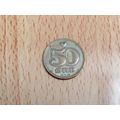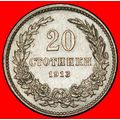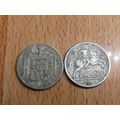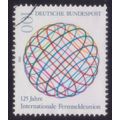(Anon) - Avalokitesvara - Buddhist sculpture Japan 14th Cent. -art postcard
- Condition : Used
- Dispatch : 2 Days
- Brand : None
- ID# : 131746867
- Quantity : 1 item
- Views : 871
- Location : United Kingdom

- Seller : justthebook (+1703)
- Barcode : None
- Start : Sun 14 Sep 2014 13:50:34 (BST)
- Close : Run Until Sold
- Remain : Run Until Sold
More Listings from This Seller view all
Seller's Description
- Art Postcard
- Work of art title: Avalokitesvara - embodies the wisdom and compassion of the Buddha
- Artist (if known): no - Japanese, 14th century
- Media or other details: sculpture
- Publisher / Gallery: The British Museum
- Postally used: no
- Stamp & postmark details (if relevant): n/a
- Size: modern
- Notes & condition details:
NOTES:
Size: 'Modern' is usually around 6in x 4in / 'Old Standard' is usually around 5 1/2in x 3 1/2in. Larger sizes mentioned, but if you need to know the exact size please ask.
All postcards are not totally new and are pre-owned. It's inevitable that older cards may show signs of ageing and use, particularly sent through the post. Any faults other than normal ageing are noted.
Stock No.: A502
------------------------------------------------
Postage & Packing:
UK (incl. IOM, CI & BFPO): 99p
Europe: GBP 1.60
Rest of world (inc. USA etc): GBP 2.75
No additional charges for more than one postcard. You can buy as many postcards from me as you like and you will just pay the fee above once. (If buying postcards with other things such as books, please contact or wait for invoice before paying).
Payment Methods:
UK - PayPal, Cheque (from UK bank) or postal order
Outside UK: PayPal only please (unless otherwise indicated). NO non-UK currency checks or money orders (sorry).
NOTE: All postcards are sent in brand new stiffened envelopes which I have bought for the task. These are specially made to protect postcards and you may be able to re-use them. In addition there are other costs to sending so the above charge is not just for the stamp!
----------------------------------------------
Text from the free encyclopedia WIKIPEDIA may appear below to give a little background information:
*************
(Sanskrit: ???????????? lit. ""Lord who looks down"") is a bodhisattva who embodies the compassion of all Buddhas. Portrayed in different cultures as either male or female, Avalokitesvara is one of the more widely revered bodhisattvas in mainstream Mahayana Buddhism, as well as unofficially in Theravada Buddhism.
The original name for this bodhisattva was Avalokitasvara. The Chinese name for Avalokitesvara is Guanshìyin Púsà (?????), which is a translation of the earlier name ""Avalokitasvara Bodhisattva."" This bodhisattva is variably depicted as male or female, and may also be referred to simply as Guanyin.
In Sanskrit, Avalokitesvara is also referred to as Padmapani (""Holder of the Lotus"") or Lokesvara (""Lord of the World""). In Tibetan, Avalokitesvara is known as Jainraisig, ?????????????? (Wylie: spyan ras gzigs) and is said to be incarnated as the Dalai Lama,[1] the Karmapa[2][3] and other high lamas.
The name Avalokitesvara is made of the following parts: the verbal prefix ava, which means ""down""; lokita, a past participle of the verb lok (""to notice, behold, observe""), here used in an active sense (an occasional irregularity of Sanskrit grammar); and finally isvara, ""lord"", ""ruler"", ""sovereign"" or ""master"". In accordance with sandhi (Sanskrit rules of sound combination), a+isvara becomes esvara. Combined, the parts mean ""lord who gazes down (at the world)"". The word loka (""world"") is absent from the name, but the phrase is implied.[4]
It was initially thought that the Chinese mis-transliterated the word Avalokitesvara as Avalokitasvara which explained why Xuanzang translated it as Guanzìzài (Ch. ???) instead of Guanyin (Ch. ??). However, according to recent research, the original form was indeed Avalokitasvara with the ending a-svara (""sound, noise""), which means ""sound perceiver"", literally ""he who looks down upon sound"" (i.e., the cries of sentient beings who need his help; a-svara can be glossed as ahr-svara, ""sound of lamentation"").[5] This is the exact equivalent of the Chinese translation Guanyin. This etymology was furthered in the Chinese by the tendency of some Chinese translators, notably Kumarajiva, to use the variant Guanshìyin (Ch. ???), literally ""he who perceives the world's lamentations""—wherein lok was read as simultaneously meaning both ""to look"" and ""world"" (Skt. loka; Ch. ?, shì).[5] This name was later supplanted by the form containing the ending -isvara, which does not occur in Sanskrit before the seventh century. The original form Avalokitasvara already appears in Sanskrit fragments of the fifth century.[6]
The original meaning of the name fits the Buddhist understanding of the role of a bodhisattva. The reinterpretation presenting him as an isvara shows a strong influence of Hinduism, as the term isvara was usually connected to the Hindu notion of Krishna (in Vaisnavism) or Siva (in Saivism) as the Supreme Lord, Creator and Ruler of the world. Some attributes of such a god were transmitted to the bodhisattva, but the mainstream of those who venerated Avalokitesvara upheld the Buddhist rejection of the doctrine of any creator god.[7]
An etymology of the Tibetan name Jänräsig (Jainraisig) is jän (eye), rä (continuity) and sig (to look). This gives the meaning of one who always looks upon all beings (with the eye of compassion).[8]
type=printed postcards
theme=religious
sub-theme=buddhism
number of items=single
period=1945 - present
postage condition=unposted
Listing Information
| Listing Type | Gallery Listing |
| Listing ID# | 131746867 |
| Start Time | Sun 14 Sep 2014 13:50:34 (BST) |
| Close Time | Run Until Sold |
| Starting Bid | Fixed Price (no bidding) |
| Item Condition | Used |
| Bids | 0 |
| Views | 871 |
| Dispatch Time | 2 Days |
| Quantity | 1 |
| Location | United Kingdom |
| Auto Extend | No |



 for 1 item(s)
for 1 item(s)
















